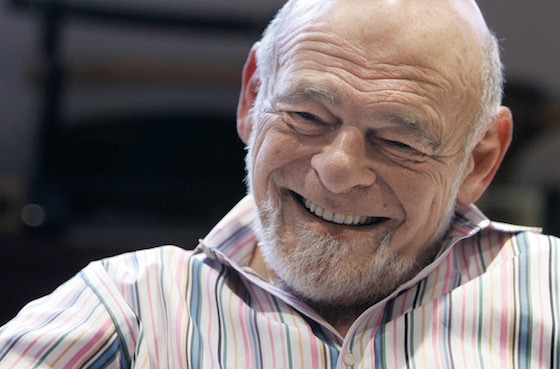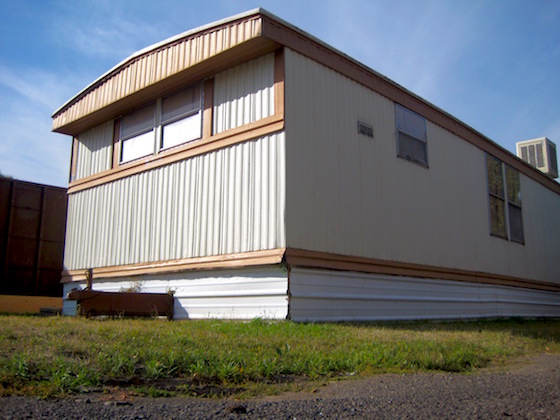Sam Zell holds the unique distinction of being the only person in American history to attain the status of the largest owner of more than one property sector. Zell has been the largest owner of three. He has owned more apartment units, more office space, and more mobile home park lots than other person in the U.S. As a result of his unbelievable level of play, people listen when Zell talks. And he does not talk very often. We saw an interview with Zell recently in the news, and thought it would be interesting to analyze it.
There’s a reason he’s called the “grave dancer”
Zell has long held that the only time to buy properties is when nobody else is doing so, or when they are mired in distress. Said Zell in the interview “so if you are an investor, the question is, what do you do better in? Do you do better in a booming economy? Or do you do better when the market is distressed and there is no competition? My experience is distress produces much higher rates of return and much more risk-reward benefit than joining the crowd and riding the wave.” He then went on to compare the application of this theory to his investing in Brazil. “Brazil is going through a very tough period of time. It's got this giant elephant in the room call Petrobras, which is negatively affecting everything. It's chasing people away. The real has gone from 165 compared to the dollar to 414 compared to the dollar. So you have real distress. But when you have real distress the value of your investment, or the value of your dollar is much, much stronger. Now a lot of people would say, "Yeah but I'm not going to go into that morass." And I understand that. But each of us has different appetites for risk.” We 100% agree with Zell. From the beginning, our business has been built on buying “broken” parks at lower prices, and then fixing them. This is not the easy road to take, but the most profitable.
The benefits to long-term investing
Zell is famous for holding his investments not for years, but for decades. Here are his thoughts on this approach. “I think the answer very much depends on the particular investment. There are certain assets that we think are very, very long-term assets. And yes, there's going to be volatility. But we just have to stay in until they get better. And then there are other assets that I think are short term. It’s the nature of the investment that determines the time period, not the philosophy.” He continues. “But in the end it’s simple economics. The way I look at it-- and this very much applies to long term vs short term -– is the following. Think about the richest man in America today, Bill Gates. If Bill Gates had to mark-to-market at the end of every year and pay tax, Bill Gates wouldn't be the richest guy in the world. The fact that we are able to compound without recognizing tax is what being a long-term investor is really all about. Last year I sold some stock in Equity Residential. I took the company public in '93, and last year was the first time I sold any stock. Same thing with Anixter. I sold some stock in Anixter last year for the first time, and I’ve held that stock since the 1980s. In each case I got about $70 a share. And my cost basis was a $1.20 and $1.80, respectively. That's how you make money. That's how you compound. So, from my perspective, that's the benefit of being a long-term investor. Now you can't be a long-term investor without staying power. And with a lot of ability to sleep at night.” We think that’s a philosophy that should make sense to anyone, and one of the reasons that we look at holding every park we buy for around a decade.
Why he refused to become the largest owner of single-family homes
Zell was often considered to be the logical buyer of the millions of vacant, foreclosed homes in the U.S., as a result of the 2007 mortgage crisis. However, he had no interest in that business model. He tells the story of why he did not participate. “Well during the depths of the 2008, 2009, 2010 period I was inundated by calls, mostly from bankers offering me piles of mortgages that I could buy that were in foreclosure. And I turned them all down. They said, "Well you're the grave dancer. You're the guy who is supposed to be taking advantage of all these opportunities." And my response to them was that I thought it would be a good trade, but I didn't think it was a business. We've now had, I think, five or six very large collections of houses that have been assembled by Blackstone and various other companies. And I think they're going to make money on the trade. But now they're in a business where they can't afford to sell anything because they can't replace it. If you're in a public company -- as some of these guys have gone public-- rule one, two and three about public companies is you don't get paid for one-time events. So yes, you made a great deal. You bought a house for 20 and you sold it for 30. And then what? Invest the 30 at one percent? So my answer is that there has been a single-family rental market, and there will continue to be a rental market. I think the guys who bought early will probably benefit from the trade. But is it a business? No. Is it a continuing theme? No. Because literally, if any of these guys sell a single house, they can't replace it at an economically justified level. It's a one time distortion of the market. I chose not to play in that. I think they're going to do fine. I don't have any criticism of the decision to buy. I just think that there's an enormous misconception that this is going to be the next form of multi-family housing.” We couldn’t agree more. We thought that managing millions of stick-built homes is an impossible task, each one across town from the other. We don’t know how that will turn out for Blackstone, but even for those who own a small portfolio of homes, we think that the management is a nightmare and mobile home parks offer infinite superiority in operating the asset.
Conclusion
Zell is a real estate legend. And his thoughts are straightforward and easy to understand. We just wish that he’d give them out more often. He once spoke at an MHI event in Chicago, and his total words were about a couple paragraphs in length. He’s the one person that we look forward to always hearing from. It’s a shame that he hates politics, as he’s one of the few people that could probably put the country back on the right track.




